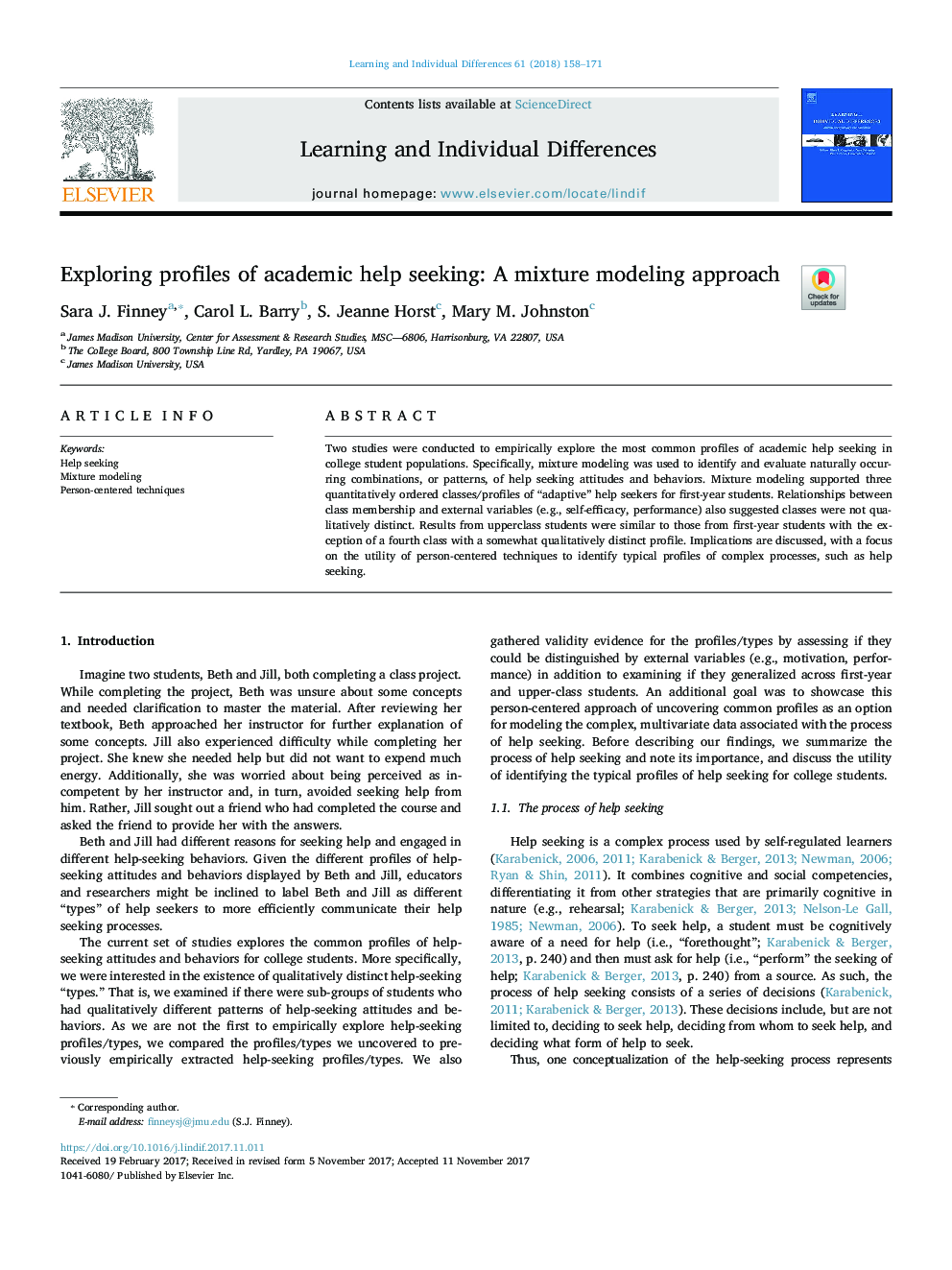| Article ID | Journal | Published Year | Pages | File Type |
|---|---|---|---|---|
| 6844536 | Learning and Individual Differences | 2018 | 14 Pages |
Abstract
Two studies were conducted to empirically explore the most common profiles of academic help seeking in college student populations. Specifically, mixture modeling was used to identify and evaluate naturally occurring combinations, or patterns, of help seeking attitudes and behaviors. Mixture modeling supported three quantitatively ordered classes/profiles of “adaptive” help seekers for first-year students. Relationships between class membership and external variables (e.g., self-efficacy, performance) also suggested classes were not qualitatively distinct. Results from upperclass students were similar to those from first-year students with the exception of a fourth class with a somewhat qualitatively distinct profile. Implications are discussed, with a focus on the utility of person-centered techniques to identify typical profiles of complex processes, such as help seeking.
Keywords
Related Topics
Social Sciences and Humanities
Psychology
Developmental and Educational Psychology
Authors
Sara J. Finney, Carol L. Barry, S. Jeanne Horst, Mary M. Johnston,
